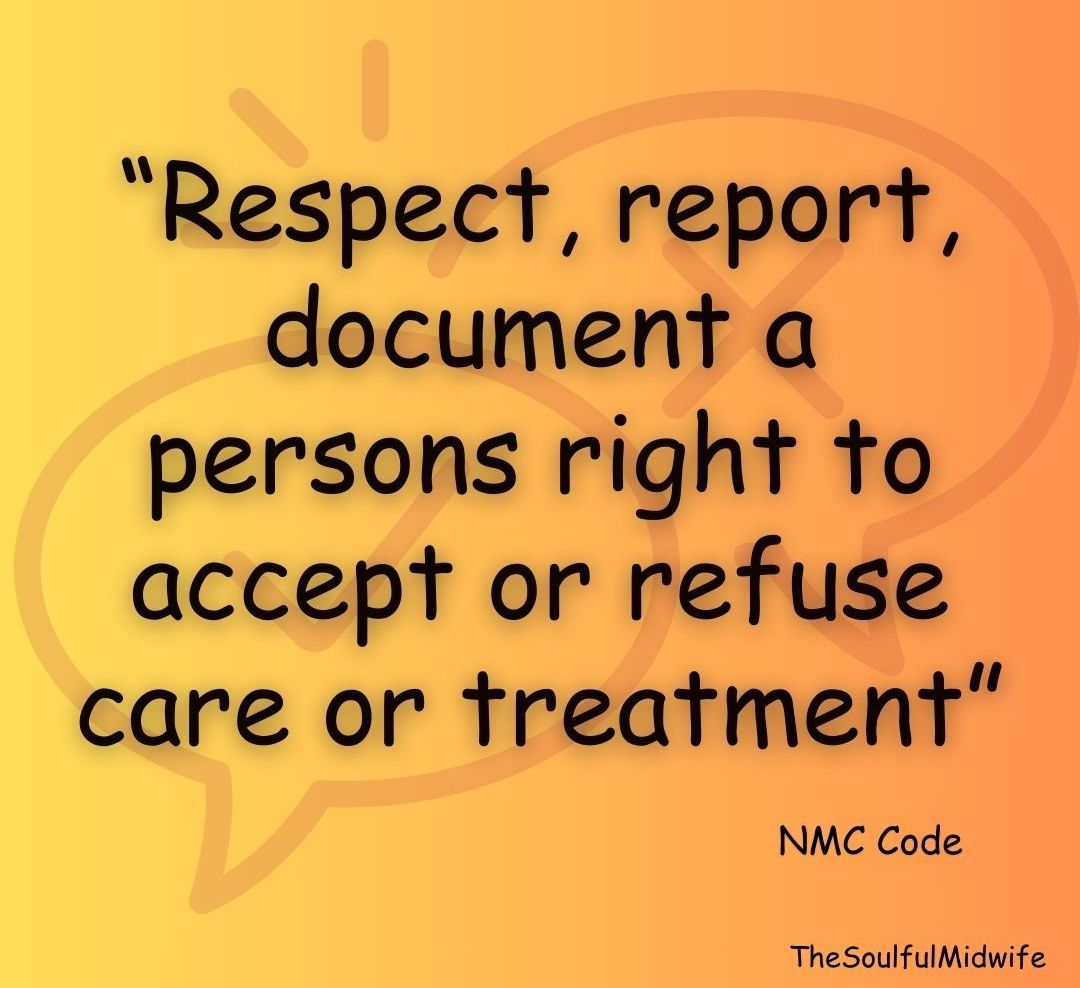What Can Your Refuse When Pregnant?
Jasmin Lodge • October 25, 2024
Do you know your rights within the health care system?

In the UK we are fortunate enough to have access to medical care through the National Health Service. So naturally, when we find out we are pregnant, we type it into google or ask our GP what to do, and this pathway of care is rolled out before us.
But did You know that You can decline any part of it if it doesn't feel right for You, if You've done Your homework and decided that a treatment or intervention is not beneficial for You?
If You feel the benefits of anything from a blood pressure reading to the induction of Your labour (and everything in between) don't outweigh the risks, You have the right to ask questions, postpone or decline care, if You want to.
You can say 'thanks but no thanks', and Your health care providers are obliged to respect Your decisions. Sometimes it can feel daunting to say no or You may feel pressured into something You're not happy with, but ultimately, Your decisions regarding Your body must be respected.
Knowing Your rights within the care system can help You to be in control of Your health throughout Your pregnancy, birth and beyond.
The Legislation
There are several statements in the Nursing and Midwifery Council (NMC) Code of Conduct (The Code) which pertain to the rights of an individual, statements which ensure that You are at the centre of any decisions about Your care:
- Midwives are to 'respect and uphold people’s human rights' *
- Work in partnership with people to make sure you deliver care effectively
- Recognise and respect the contribution that people can make to their own health and wellbeing
- Encourage and empower people to share in decisions about their treatment and care
- Respect the level to which people receiving care want to be involved in decisions about their own health, wellbeing and care
- Respect, support and document a person’s right to accept or refuse care and treatment
In addition to this, point 4.1 states that midwives must:
'balance the need to act in the best interests of people at all times with the requirement to respect a person’s right to accept or refuse treatment'
When considering birth, the application of Human Rights Laws in the UK means that You have the right to make decisions about Your maternity care, You have the right to physical autonomy and integrity. This includes the right to decline care. Which must be respected by the people caring for you.
So where am I going with all of this...
There are instances (and I've seen it happen) where individuals are pressured into making a decision or consenting to a treatment or intervention that perhaps they were not comfortable with. Sometimes when an individual has declined a certain intervention or medication, a more senior colleague is called in to give them 'further information', which can feel like coercion and can cause distress.
I'm sad to say that this is the way of our health care system, due to fear of complaints or legal action a lot of medical professionals now work in a way that is defensive rather than individualised to the client. What this means is that hospital policies and procedures provide the rules which are expected to be followed to the letter, rather than used as a guidance to be discussed with each individual. If You wish to deviate from this, You are often questioned, pressured or sometimes even coerced to do as You are told, in line with policy. However this is not always in accordance with Your own preferences.
This is not about to change any time soon, but Your experience doesn't need to be like this.
Knowing your rights and having a solid foundation and understanding of the implications of interventions and treatments will give You the confidence You need to stand up for yourself, consent to or decline any treatment that you feel is right for You and feel in control in the instances when You might be on the receiving end of pressure to follow the 'rules'.
If you're not sure about something:
- Ask more questions
- Ask for more time to think
- Do your own research
- Seek alternative advice
- Listen to your intuition
- Stand strong in your decisions
And remember, it doesn't have to be a yes or no response, You might want to wait a while before making a decision, see how things play out first, or try a different option and perhaps ultimately return to the original suggestion at a time that feels right for You.
Ultimately it is You, not the doctors or midwives, who has to live with the decisions that are made during Your pregnancy and the birth of Your baby. Make decisions which You will look back on and be happy with.
And if things don't go entirely to plan (let's face it there are many variables, it's not always possible to stick to the plan!), try not to be too hard on yourself.
We do the best we can with the information we have available,
when we know better we can do better.
*The Code (nmc.org.uk)












